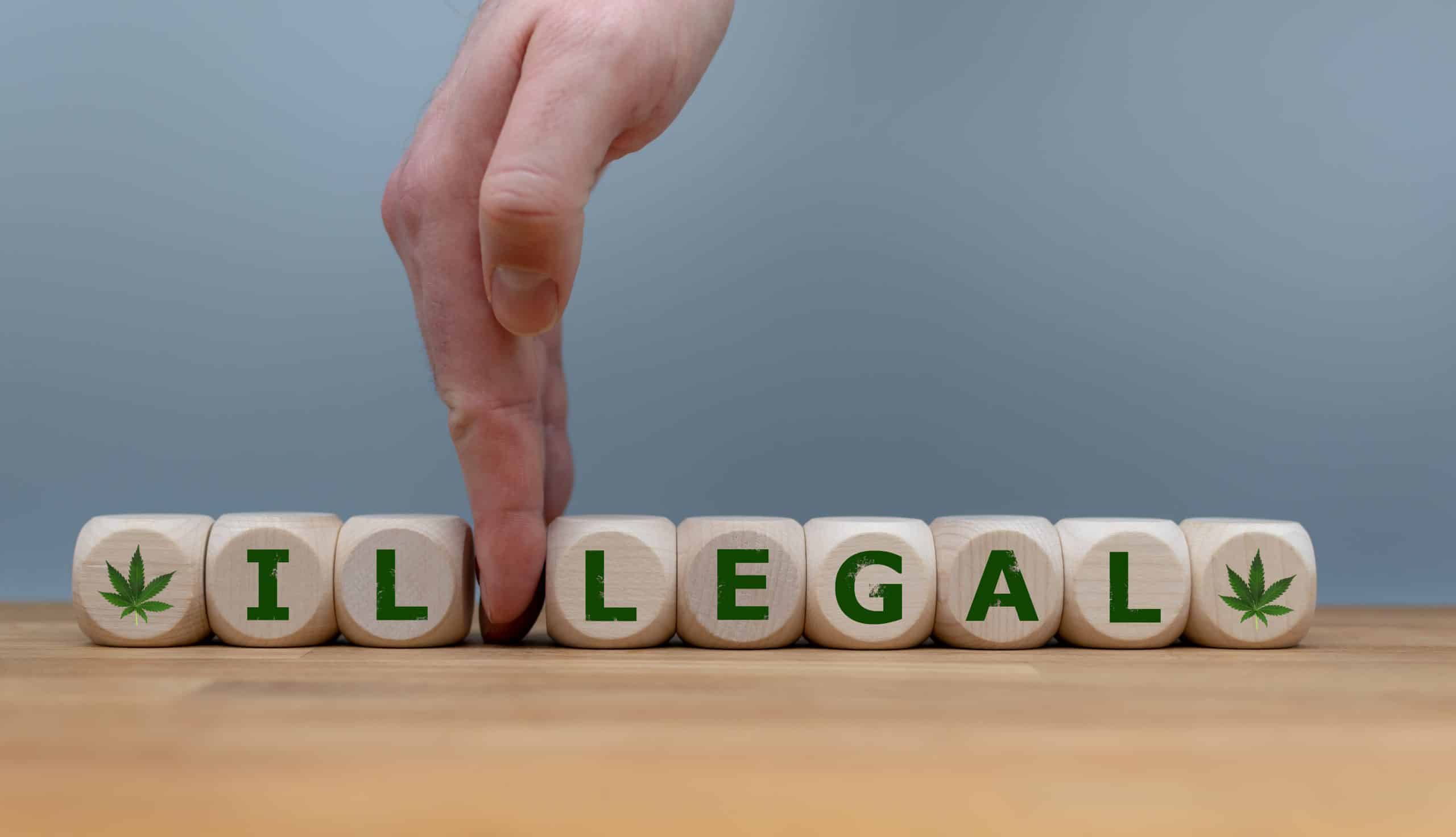Cannabis legalization in Latin America is experiencing a profound shift, and Brazil’s recent decision to decriminalize marijuana for personal use is a landmark moment. This move is especially significant for us at Mesobis, as one of our co-founders hails from Brazil, giving us a personal stake in this monumental change.
However, it’s important to note that Brazil’s progress is facing substantial pushback. Right after the Supreme Court’s decriminalization ruling, Brazil’s Congress passed legislation that could criminalize the possession of all illegal drugs, potentially nullifying the court’s decision.
For years, Latin American countries have grappled with the complexities of cannabis legislation, navigating between strict prohibition and progressive reform. As we witness these changes, it’s essential to understand the broader landscape.
While we’re thrilled to see Brazil push forward towards more relaxed cannabis laws, we also want to highlight the diverse landscape of Latin American countries—some of which have made significant strides in decriminalization and legalization, while others still maintain strict prohibition.

Latin American Countries with Decriminalized Weed
Several countries have opted for decriminalization, allowing personal use but keeping sales and distribution illegal. This middle ground aims to reduce the burden on the criminal justice system while acknowledging personal freedoms.
Brazil
Legal History: Brazil’s journey towards cannabis reform reached a significant milestone in 2024 when the Supreme Court ruled to decriminalize marijuana possession for personal use. This decision marked a dramatic shift from the stringent drug laws that had long dominated the country. The ruling aimed to alleviate Brazil’s massive prison population and address the disproportionate impact of drug laws on marginalized communities.
Current Status: Personal use of cannabis is now decriminalized, though selling remains illegal. The exact quantity considered for personal use is still to be determined. However, this progress faces substantial pushback. Shortly after the Supreme Court’s decision, Brazil’s Congress passed legislation known as “PEC das drogas,” which aims to criminalize the possession of all kinds of illegal drugs. This bill has already been approved in both Congress and the Senate and is moving forward to a final vote. If approved, it would likely nullify the Supreme Court’s decriminalization ruling, marking a major setback for cannabis reform in Brazil.
Key Insight: Brazil’s prison population is the third-largest in the world, with a significant portion incarcerated for minor drug offenses. The Supreme Court’s decriminalization effort was intended to alleviate some of the overcrowding in prisons and reduce the criminalization of low-level drug offenders. However, the potential enactment of “PEC das drogas” threatens to undo this progress, highlighting the ongoing tug-of-war between progressive reform and conservative backlash in Brazil’s approach to drug policy.
Mexico
Legal History: In a landmark decision in 2018, Mexico’s Supreme Court ruled that the prohibition of recreational cannabis was unconstitutional. This ruling paved the way for legislative changes, marking a significant step towards legalization in one of Latin America’s largest countries.
Current Status: Recreational use is legal for personal possession and cultivation. While the regulatory framework for commercial sales is still being developed, the country has made significant strides in cannabis reform.
Key Insight: Mexico’s move towards legalization is seen as a strategic effort to curb drug-related violence and dismantle powerful cartels that have plagued the country for decades.
Colombia
Legal History: Colombia took a progressive stance on drug policy by decriminalizing small amounts of cannabis for personal use in 2012. This was part of broader efforts to tackle drug-related issues more humanely and effectively.
Current Status: While personal use is decriminalized, recreational use remains illegal. However, Colombia boasts a thriving medical cannabis industry, positioning itself as a significant player in the global market.
Key Insight: Colombia’s ideal climate and fertile soil make it an excellent location for cannabis cultivation. This has enabled the country to develop a robust medical cannabis industry, with substantial export potential.
Argentina
Legal History: Argentina’s Supreme Court ruled in 2009 that penalizing adults for personal cannabis use is unconstitutional. This decision was a significant step towards more progressive drug policies, although the law has been slow to fully catch up.
Current Status: Personal use is decriminalized, with increasing momentum towards broader legalization. Medical cannabis is already legal and regulated, providing a framework for safe and controlled use.
Key Insight: Argentina’s forward-thinking approach to medical cannabis has led to extensive research and development, making it a regional leader in cannabis-based therapies.
Chile
Legal History: Chile has a complex relationship with cannabis, having decriminalized personal use while maintaining strict regulations for medical cannabis. This dual approach reflects the country’s cautious stance on drug reform.
Current Status: Personal use is decriminalized, but the medical cannabis industry is tightly controlled. Discussions on further reforms are ongoing, indicating potential changes in the near future.
Key Insight: Public support for medical cannabis in Chile has surged, leading to increased patient access and greater awareness of its therapeutic benefits.
Peru
Legal History: Driven by patient advocacy and grassroots movements, Peru legalized medical cannabis in 2017. This decision marked a significant victory for patients seeking alternative treatments.
Current Status: Personal use is decriminalized, and medical cannabis is legal and regulated. The regulatory framework continues to evolve to better meet patient needs and ensure access.
Key Insight: Peru’s legalization efforts were largely driven by civil society, demonstrating the power of grassroots movements in shaping drug policy.

Latin American Countries Where Weed is Illegal
Despite the trend towards legalization and decriminalization, some Latin American countries still maintain strict cannabis laws. These nations have yet to embrace the green wave.
Venezuela
Legal History: Venezuela has maintained strict drug laws, with both distribution and possession of cannabis remaining illegal. The government has shown little interest in reforming these laws.
Current Status: There is no legal use of cannabis, and enforcement remains stringent. The focus is primarily on controlling other illicit substances.
Key Insight: Despite the strict laws, there are ongoing discussions and debates about potential reforms, though significant changes seem distant.
Ecuador
Legal History: Ecuador has not yet decriminalized or legalized cannabis, maintaining a firm stance against its use. This reflects a broader conservative approach to drug policy.
Current Status: Cannabis use and distribution remain illegal, and these laws are strictly enforced. However, there are growing discussions about potential reforms.
Key Insight: Ecuador’s conservative stance on cannabis is slowly being challenged by advocates pushing for more progressive drug policies.
Paraguay
Legal History: Paraguay has some of the strictest cannabis laws in the region, prohibiting both recreational and medical use. This hardline stance reflects the country’s broader drug policy framework.
Current Status: Cannabis remains illegal, with enforcement focusing heavily on combating drug trafficking. There are no legal avenues for cannabis use.
Key Insight: Paraguay’s strict drug laws are primarily aimed at large-scale traffickers, but they also impact individuals caught with small amounts.
Bolivia
Legal History: Bolivia’s drug policies are focused on regulating the coca leaf, leaving little room for cannabis reform. Both possession and use of cannabis remain illegal.
Current Status: Cannabis is illegal, with strict enforcement of drug laws. The government’s attention is primarily on controlling other traditional substances.
Key Insight: The Bolivian government’s focus on coca leaf regulation reflects its cultural significance, overshadowing cannabis reform efforts.

Looking Forward: The Future of Cannabis Legalization in Latin America
The cannabis landscape in Latin America is rapidly evolving, driven by shifts in public opinion, legal challenges, and advocacy. As more countries reconsider their stance on cannabis, we may see a domino effect leading to broader legalization and decriminalization. Brazil’s recent decision is a significant step in this direction, reflecting a growing trend toward sensible and humane drug policies.






